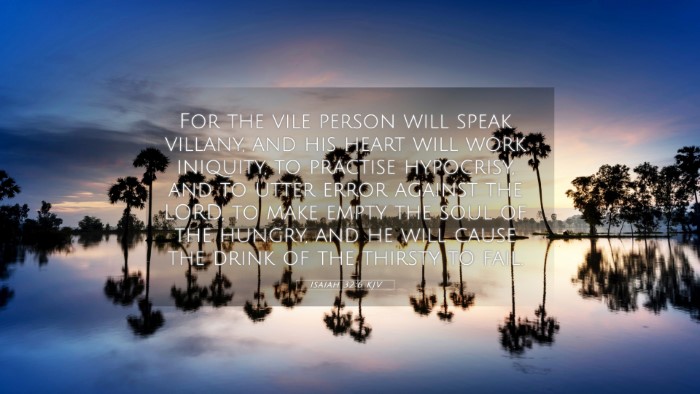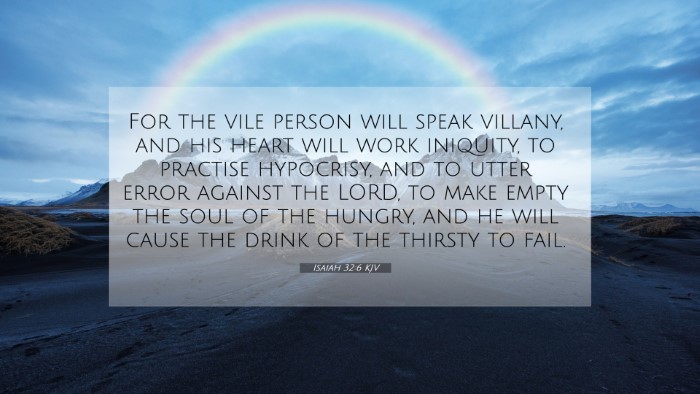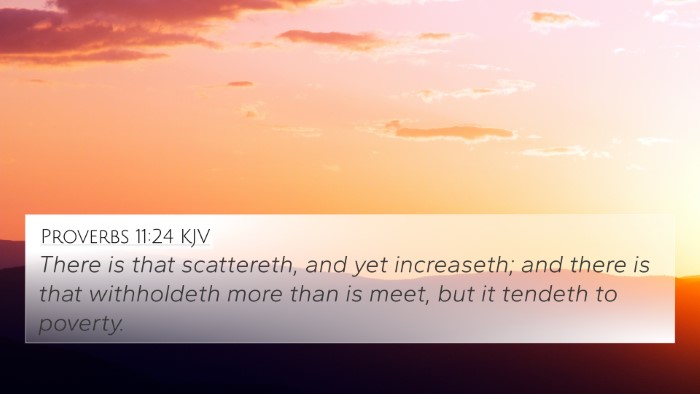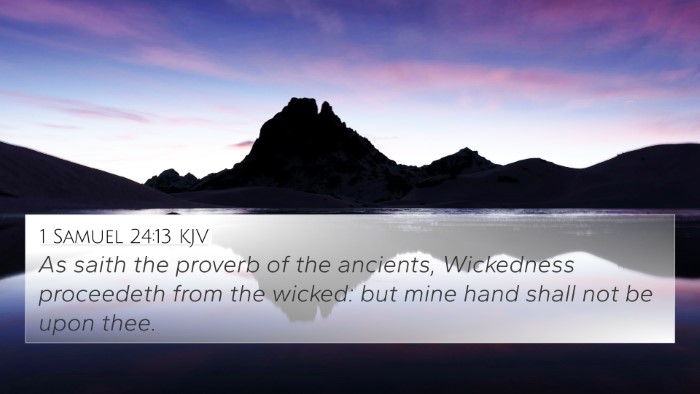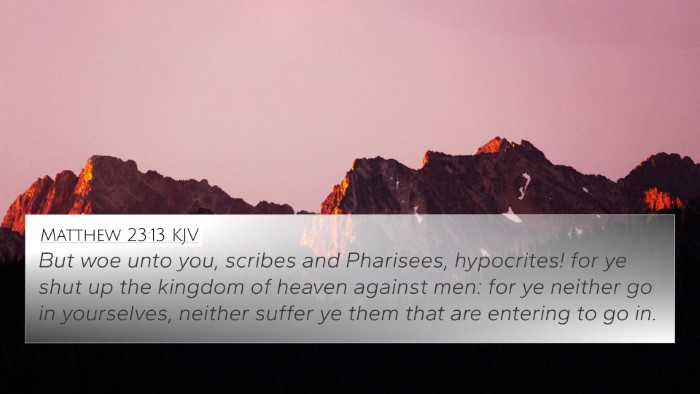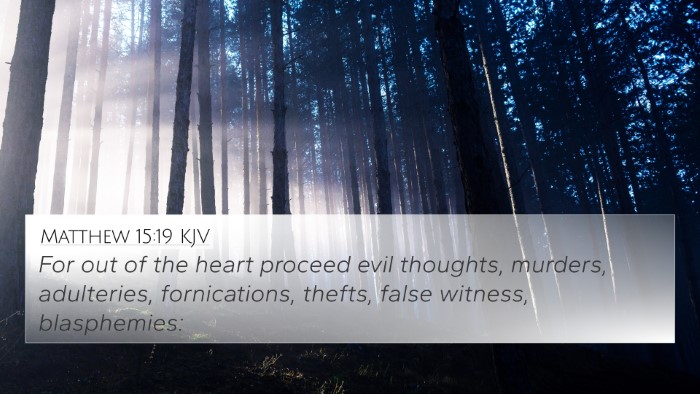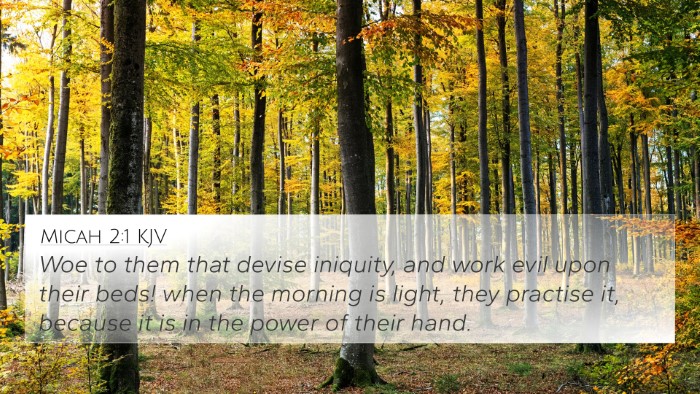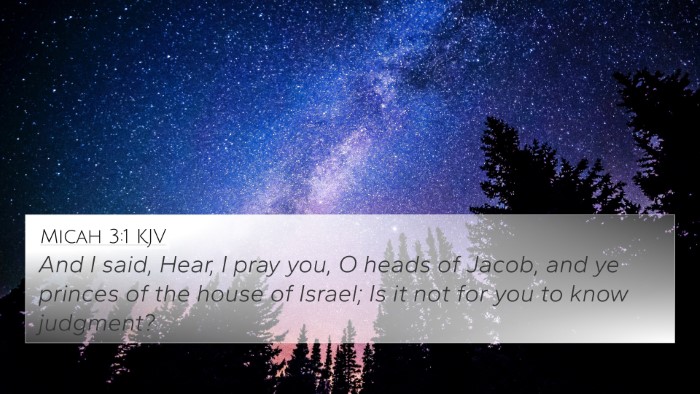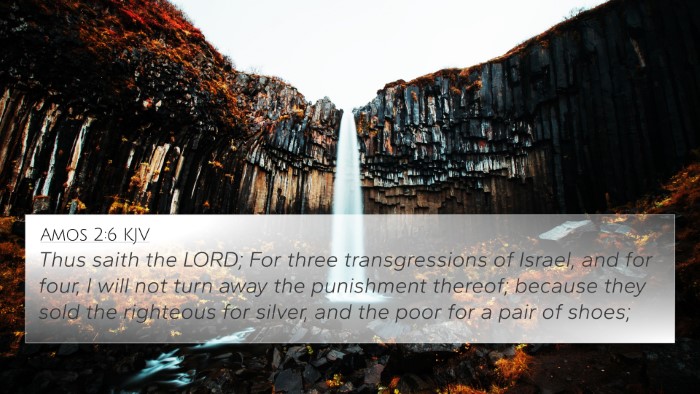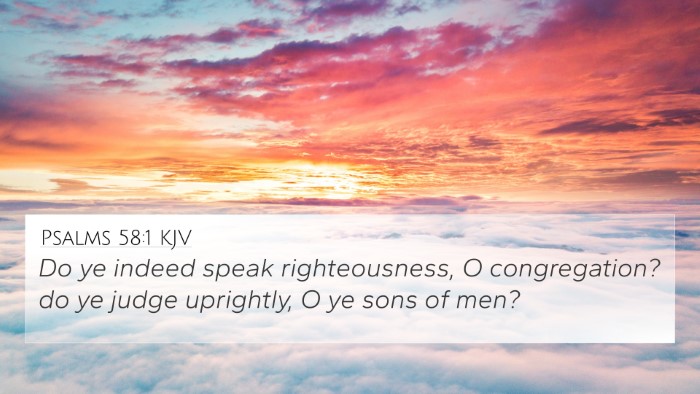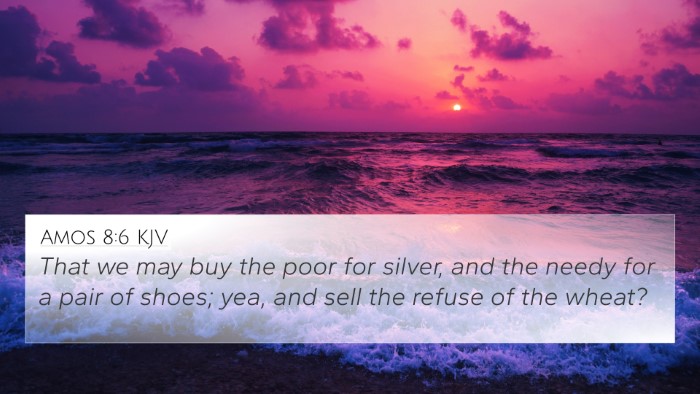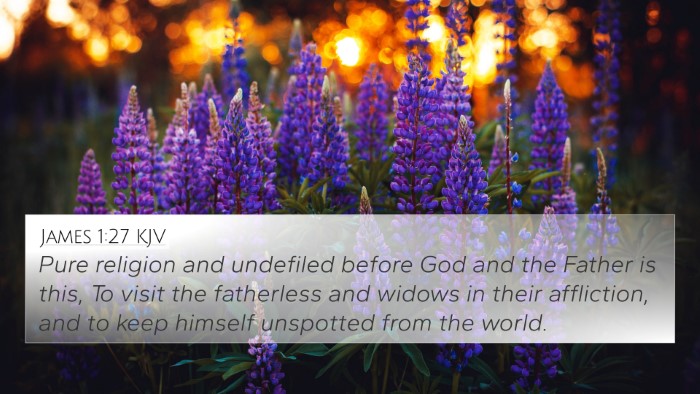Understanding Isaiah 32:6
Isaiah 32:6 states, "For the vile person will speak villainy, and his heart will work iniquity, to practice hypocrisy, and to utter error against the Lord, to make empty the soul of the hungry, and he will cause the drink of the thirsty to fail." This verse offers profound insights into the human condition, revealing the nature of wickedness and its implications for society.
Commentary Insights
-
Matthew Henry: According to Matthew Henry, this verse illustrates the characteristic behavior of those who are morally corrupt. They communicate deceit and error, contrasting with the truth of God. The vile person not only harms themselves but also impacts others, particularly the vulnerable, thus showcasing a broader social responsibility.
-
Adam Clarke: Adam Clarke emphasizes that the vile person’s actions stem from a heart inclined toward treachery and hypocrisy. Clarke notes the dangers of such behaviors, as they undermine both individual integrity and collective welfare.
-
Albert Barnes: Albert Barnes further highlights that the vile person's speech is deliberately twisted to mislead others, pointing to the serious consequences of such manipulative traits in leadership and society. He draws attention to the profound spiritual void created when one neglects the needs of the oppressed, as seen with "the hungry" and "the thirsty."
Thematic and Spiritual Connections
Isaiah 32:6 not only warns against the evil that can arise in society, it also invites reflection on the >themes of righteousness, justice, and the responsibility of individuals to care for others. The Bible often places paramount importance on how we treat the needy and the thirsty, echoing throughout various scriptures.
Bible Verse Cross-References
- Proverbs 15:12 - "A scoffer does not love one who corrects him, nor will he go to the wise."
- Jeremiah 9:3 - "And like their bow, they have bent their tongues for lies. They are not valiant for the truth on the earth."
- Matthew 23:27-28 - "Woe to you, scribes and Pharisees, hypocrites! For you are like whitewashed tombs which indeed appear beautiful outwardly, but inside are full of dead men's bones and all uncleanness."
- James 3:14-16 - "But if you have bitter envy and self-seeking in your hearts, do not boast and lie against the truth. This wisdom does not descend from above, but is earthly, sensual, demonic."
- Isaiah 5:20 - "Woe to those who call evil good, and good evil; who put darkness for light, and light for darkness."
- Micah 6:8 - "He has shown you, O man, what is good; and what does the Lord require of you but to do justly, to love mercy, and to walk humbly with your God?"
- Luke 6:31 - "And just as you want men to do to you, you also do to them likewise."
Connecting Themes Across Scriptures
The vile person's behavior in Isaiah 32:6 reveals a recurring theme in the Bible regarding the consequences of moral decay. The focuses on deceitful practices are evident and can resonate through various genres of scripture, such as the wisdom literature (Proverbs, Ecclesiastes) and the prophetic texts (Jeremiah, Micah).
Tools for Bible Cross-Referencing
To fully grasp the interconnectedness of Bible verses, utilizing tools such as a Bible concordance or a Bible cross-reference guide can be exceedingly helpful. Here are some suggested methods and resources:
- Understanding how to find cross-references in the Bible effectively.
- Utilizing comprehensive Bible cross-reference materials for in-depth study.
- Implementing cross-reference Bible study methods for deeper insights.
- Exploring Bible verses related to specific themes through organized indexes.
Application of Isaiah 32:6 in Daily Life
This verse serves as a reminder for believers to remain vigilant against the deceitful nature of sin and the importance of kindness towards others. Those who profess faith must actively walk in truth to avoid contributing to the burdens of the needy. Fostering a spirit of righteousness influences not only individual lives but communities as a whole.
Conclusion
Isaiah 32:6 carries an essential warning about the dynamics of evil in society. By placing importance on the treatment of others and upholding truth, believers can navigate the complexities of spiritual life, making meaningful connections through thematic Bible verse analysis. There is much to learn from cross-referencing biblical texts, as it offers direction toward understanding the ancient wisdom and how it applies today.

